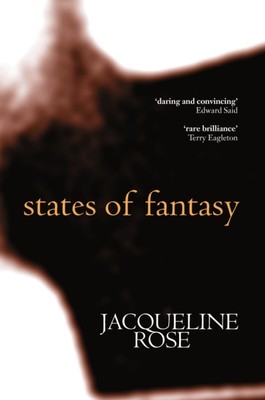
- We will send in 10–14 business days.
- Author: Jacqueline Rose
- Publisher: Clarendon Press
- ISBN-10: 0198183275
- ISBN-13: 9780198183273
- Format: 15.4 x 23.2 x 1.6 cm, minkšti viršeliai
- Language: English
- SAVE -10% with code: EXTRA
Reviews
Description
In September 1993, Israel and the PLO signed their first peace treaty; in April 1994, South Africa held its first nonracial elections. Jacqueline Rose argues here for the importance of these two arenas of historic conflict to the English literary and cultural imagination and to the new disciplinary boundaries of the humanities today. As in her previous books, her fundamental question is the place of fantasy in public and private identities. But in States of Fantasy she pushes her investigation into what at first glance seem unlikely places. In fact, as she convincingly demonstrates, nowhere demonstrates more clearly than the above regions the need for a psychoanalytically informed understanding of historical process. And nothing makes more visible the unbreakable line that runs between literature and politics than the place of England and its writing in those histories. Her provocative study offers the strongest rebuttal to critics who try to sever the links between the study of
literature and culture and the making and unmaking of the modern world.
EXTRA 10 % discount with code: EXTRA
The promotion ends in 23d.19:27:44
The discount code is valid when purchasing from 10 €. Discounts do not stack.
- Author: Jacqueline Rose
- Publisher: Clarendon Press
- ISBN-10: 0198183275
- ISBN-13: 9780198183273
- Format: 15.4 x 23.2 x 1.6 cm, minkšti viršeliai
- Language: English English
In September 1993, Israel and the PLO signed their first peace treaty; in April 1994, South Africa held its first nonracial elections. Jacqueline Rose argues here for the importance of these two arenas of historic conflict to the English literary and cultural imagination and to the new disciplinary boundaries of the humanities today. As in her previous books, her fundamental question is the place of fantasy in public and private identities. But in States of Fantasy she pushes her investigation into what at first glance seem unlikely places. In fact, as she convincingly demonstrates, nowhere demonstrates more clearly than the above regions the need for a psychoanalytically informed understanding of historical process. And nothing makes more visible the unbreakable line that runs between literature and politics than the place of England and its writing in those histories. Her provocative study offers the strongest rebuttal to critics who try to sever the links between the study of
literature and culture and the making and unmaking of the modern world.


Reviews